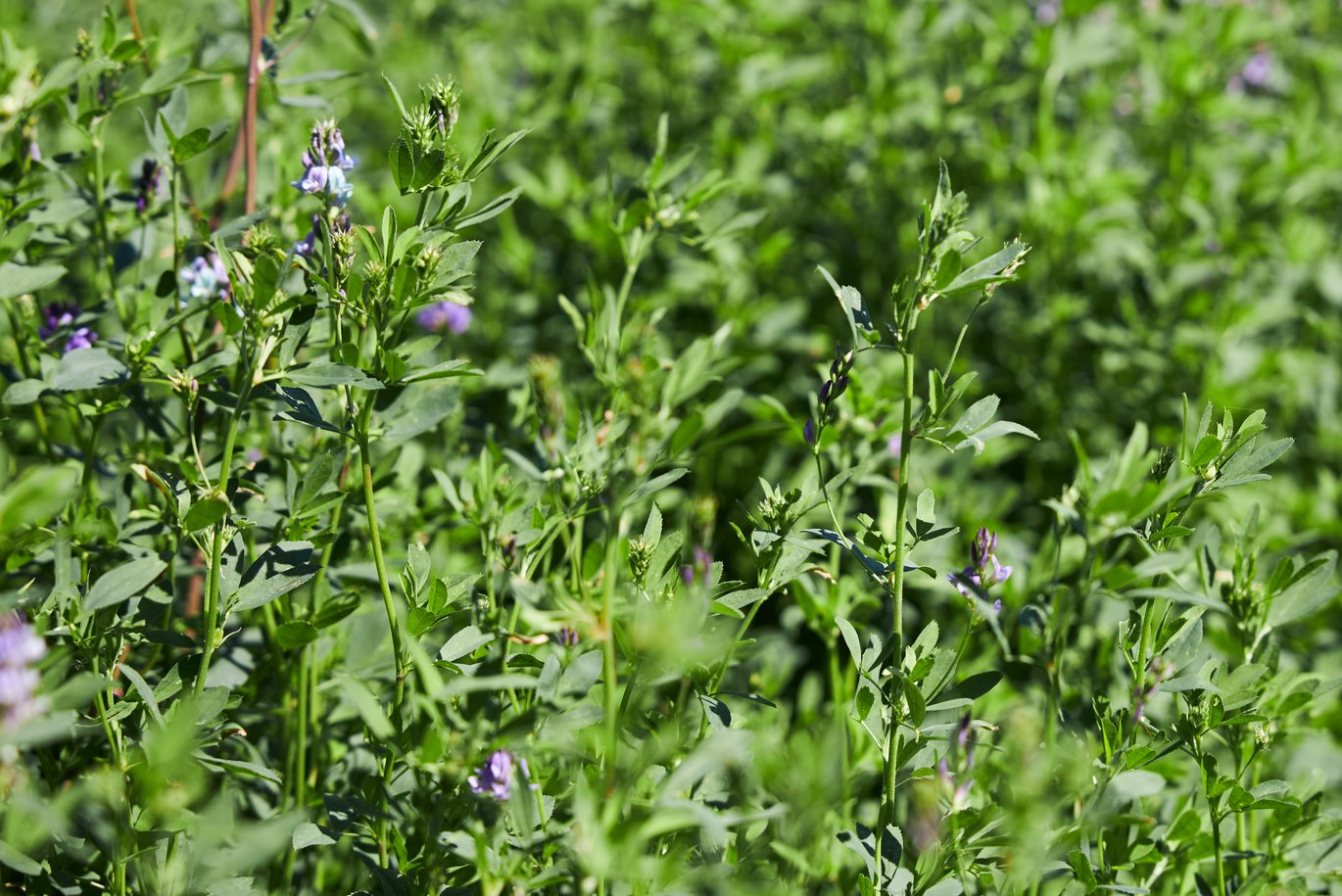New research shows the potential of alfalfa as a locally produced plant protein
Where will future proteins come from? To address this question, researchers from Aarhus University have investigated the digestibility of RuBisCO, the main protein in the leafy legume alfalfa. The results are promising even at low purity rates, pointing towards alfalfa’s potential as a more sustainable, locally produced plant protein source for human consumption.

Protein is an essential part of our diet, but traditional protein production methods pose challenges to environmental sustainability.
The quest for alternative protein sources has led researchers to explore green leafy legumes, with alfalfa proving to be a promising candidate as a locally grown, sustainable source of protein that can be harvested multiple times a year.
Recently researchers from the Department of Food Science at Aarhus University have tested the in vitro protein digestibility of RuBisCO from alfalfa at different purities to further investigate the leafy legume’s potential as an alternative source of protein for human consumption.
Amino acids and protein digestibility
The nutritional value of protein hinges not only on their essential amino acid composition but also on their digestibility. Limited research exists on how processing and refinement influence the digestibility of the main protein found in alfalfa, called RuBisCO.
Drawing parallels with observations in pea-based proteins, researchers hypothesised that the digestibility of RuBisCO from alfalfa varies with different processing histories and refinement levels.
To test the hypothesis, mild-heated, microfiltered alfalfa juice underwent different refining processes to five different purity levels, ranging from approximately 20% to approximately 90%.
The digestibility of the different purities was tested using the INFOGEST 2.0 method, which simulates the human digestive system in a controlled environment. The samples were then analysed using a high-resolution mass spectrometer.
Surprising results
The researchers had hypothesised that lower purity levels would result in lower digestibility due to the presence of antinutrients, that inhibit the absorption of nutrients in the body.
“My hypothesis was that less refined proteins should have lower digestibility”, Hart Tanambell, who led the experiments at the Department of Food Science, says.
But despite variations in processing histories and refinement levels, the digestion of RuBisCO from alfalfa appeared to be independent of these factors.
These are important findings, because the essential amino acid composition of RuBisCO is known to be better than soy, which Europe imports millions of tons of every year for feed and food.
“This is a preliminary demonstration that this protein is high quality because it also has an excellent essential amino acid profile and in vitro digestibility, which potentially makes it a better protein source in Denmark than soy,” he says.
Professor at the Department of Food Science Trine Kastrup Dalsgaard supervised the PhD-project, which the study was a part of. She also sees great potential in the results:
“We are very happy that the work performed has led to a grand solution Innovation Fund Denmark project GreenImPro. We hope that we will soon see alfalfa protein for food as an alternative to soy and animal protein,” the professor notes.
More research is needed
This study opens the door to a more sustainable future of protein consumption, with locally sourced options of high quality.
Alfalfa RuBisCO's high digestibility, regardless of processing history, positions it as a valuable candidate for further exploration and development as a dietary protein source.
However, on top of protein digestibility, protein availability in animal models or in humans and food safety need to be investigated. Therefore, more research is needed, Hart Tanambell explains.
Additional information | |
We strive to ensure that all our articles live up to the Danish universities' principles for good research communication (scroll down to find the English version on the website). Because of this the article will be supplemented with the following information: | |
Project title: | |
Funding: | Centre for Innovative Food Research (CiFOOD), Aarhus University |
Conflict of interest: | None |
External commenting: | None |
Collaborators: | Department of Food Science, Aarhus University |
Contact: | Research assistant Hart Tanambell |
